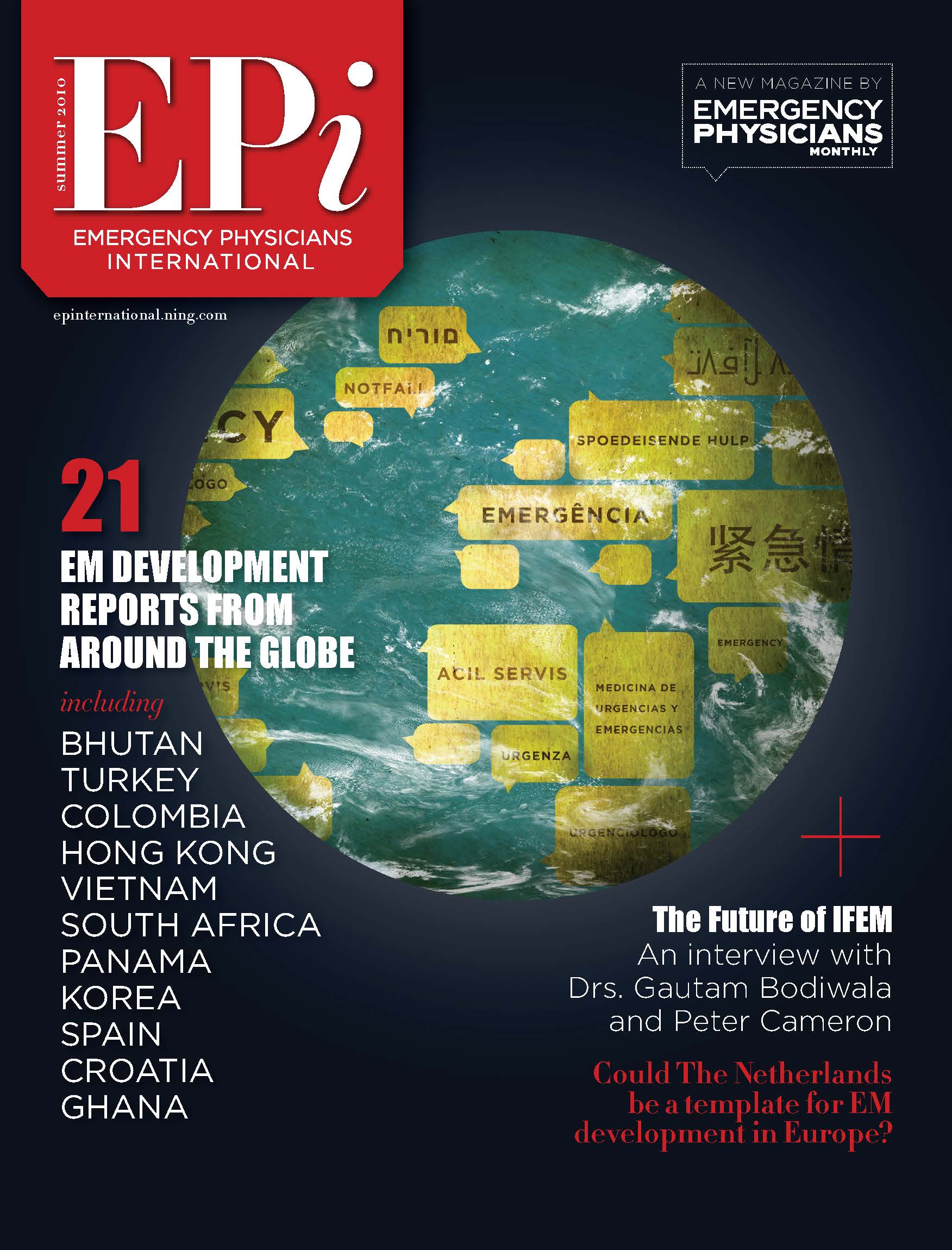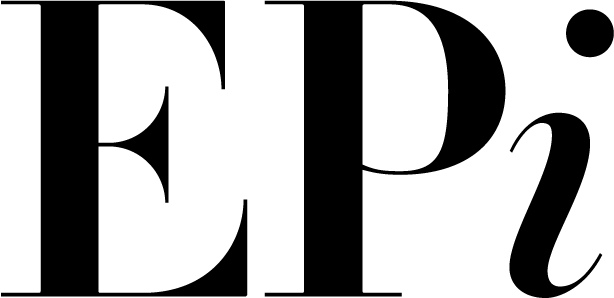Dr. Abdo Khoury on EUSEM, Sim Training and Fighting Burnout
Dr. Abdo Koury is a Professor of Emergency Medicine and Immediate past-President of European Society for Emergency Medicine (EUSEM). We caught up with him to learn about his time leading EUSEM, his passionate for simulation training and what he learned on the front lines of the COVID-19 response.
EPI: What are some of your priorities in creating a great simulation center?
Dr. Abdo Khoury: A medical student’s first time working on a patient should not be at a hospital. With regard to the simulation center we want to create an environment where all of the medical students can learn using the simulation before working in a hospital. In France, medical students begin learning about medicine in their first year. Our goal is to spread the simulation all over the university so that students on all levels are familiar with interacting with patients.
EPI: When I think about a simulation center I think about high fidelity mannequins and artificial intelligence. Is that what you’re focused on or just the basics?
Dr. Abdo Khoury: We focus on everything from the basics to high fidelity. We have equipment for procedural surgery, the DaVinci Simulator, a laparoscopic simulator, high fidelity simulator for endovascular strategies and treatments for neurology, cardiology, and radiology. We also have devices for Ob-Gyn and obstetrics.
EPI: What simulation device do you feel the most excited about?
Dr. Abdo Khoury: The mannequin is becoming more high fidelity. It’s like simulating a real patient, even down to the the facial structure.They’re so realistic that it feels like you’re working on a cadaver. I used one of these mannequins for a short training video for a device that we invented for cardiac arrest. Some of my friends called me to ask about the “patient” in the video and they were in disbelief when I told them that it was a mannequin. Even with that, although the technology is important, what’s also important is the training that accompanies it and the debriefing message that happens after. The debrief includes what you’ve learned and the outcomes of the simulation. In addition to that it teaches everyone from surgeons, anesthesiologists, oncologists, and nurses how to behave in their environment and how to communicate with each other. These are skills that you don’t learn in the university but you have to learn them in simulation.
EPI: Considering your position at EUSEM I would imagine that you’re dealing with societies across Europe that may not have big budgets so the idea of an expensive simulation center may be out of reach. How do you think about increasing access to great training for systems that don’t have big budgets?
Dr. Abdo Khoury: The European Commission is investing funds in education all over Europe to upgrade everyone and put them on the same level - not only with simulations but globally in education. Simulation centers are being opened all over Europe in countries such as Poland and Czech Republic. Their centers are actually better than the ones in France. You’re right in that not everyone can have a high fidelity center but there are still tools and basic mannequins that can be used. You have to start by learning the basic procedural simulation - how to put in an IV line and how to intubate. You don’t need a highly sophisticated mannequin to do the basics. These simulations aren’t expensive to do. You can use a basic ALS simulator to debrief on certain situations.
EPI: Let’s talk about your time leading EUSEM. What was something that surprised you about stepping into that challenge? What’s something that you learned through that process?
Dr. Abdo Khoury: When I applied to be president, I understood how demanding it would be. But a few months after being elected president is when we had the lockdown due to COVID. We were practically working around the clock and were forced to react to situations very quickly. We were also intentional on keeping the medical community linked together. We would hear and learn from our friends in Italy who were overwhelmed yet also a wealth of information. We were all on clinical activities because there was no more protected time for research or anything else. We were all on the front line. We had to start research projects on COVID so that we could learn from it to see how to treat it and to cope with it. Our board produced a position paper on how to deal with COVID within the first hours. We hosted webinars to share our experiences all over the world and gave nearly every country a space to share their experiences. We couldn’t wait on publications to hear what was transpiring in other places so we took it upon ourselves to create communication within the medical field.
EPI: People have discussed various potential silver linings with COVID such as increasing adoption of virtual care. Do you feel like there was a silver lining with this increase in global communication.
Dr. Abdo Khoury: We’ve used technology to accommodate and protect ourselves and patients who had concerns of coming into the hospital. Our virtual assessments determined whether or not patients would have to physically come into the hospital. At one point, there was a travel ban so we had no choice but to use video conferencing apps. What is interesting is that a group up to 15 of us would travel to Brussels to have a meeting that would last for three hours but with these apps you can have a meeting from your office and resume your daily obligations without your time being as affected. Another positive is that it’s good for the planet and ecology because you don’t travel or burn carbon. Virtual applications do serve their purpose but it could never replace meeting physically. When we gather in person there are things that we can’t get from a screen. When you meet someone for coffee or a drink you share ideas and sometimes its the birth of a new project, collaboration or friendship that you can’t do otherwise. So, virtual is good for short meetings or webinars but for events such as conferences I feel that it’s better to travel and experience them in person.
EPI: What is the greatest challenge that faces EUSEM as you come into your tenure as the immediate past president? What do you want to tackle during that tenure? What is the next big challenge for EUSEM?
Dr. Abdo Khoury: In August of 2020 I wrote that emergency medicine received a lot of attention in the COVID era. Globally, people were cheering for emergency medicine and clinal care. The healthcare professionals were already in crisis before COVID. COVID didn’t reveal this but accelerated the flaw of the healthcare system across the world. We were asking politicians to invest more in the health care sector and not run it like a profitable industry. Unfortunately, governments across Europe and the world didn’t understand it this way and COVID came and accelerated the issue. We need to take the next 10 or even 30 years to rebuild the healthcare system globally. EUSEM is part of that because this rebuild is based on acute and emergency care. Times have changed from seeing a general practitioner, taking a test in a lab, going to radiology, and then getting a diagnosis. Today people want everything immediately and we can’t revert. Emergency medicine and acute care should be a vital piece of this new healthcare system. If we don’t work towards that then we won’t be able to survive in healthcare and it will crash everywhere.
EPI: That’s a great macro perspective. Let’s hone in a little more. I’ve spoken to a number of young emergency physicians who are dealing with stress and burnout which leads them wondering if they should continue in this field. Any words of advice for a young physician in Europe contemplating the longevity of their career?
Dr. Abdo Khoury: Yes, they can have a long career. We have to work on putting more resources into the emergency medicine system. This includes having short shifts and better working conditions with an emphasis on encouraging an overall healthy work life balance. We’ve addressed this at EUSEM by conducting a survey about burnout and now we have a project that we talked about at the last conference in Berlin. We’ll soon be giving some guidance and ideas about how the working conditions should be in the emergency departments and emergency medical system as a whole. We’re intentionally addressing this in the next 10 years-how to work differently and how to put more resources in the system so people can age in the system and not be burned out in 5-10 years.
EPI: Are there any specific practices that you think are going to be critical to that?
Dr. Abdo Khoury: You have to diversify your activity. You can’t only work clinical activities and shifts. Spend some time in research, go to conferences to see how other people are practicing, and do some simulation to stay sharp. Diversifying makes you feel more comfortable. My generation had several opportunities to diversify activities. This keeps you from getting bored in emergency medicine. Everyday shouldn’t resemble the other. One day we can be in the ambulance, the next on a helicopter, the next at dispatch, and the next in the emergency department. If you diversify your activity you can age a lot in emergency medicine and have longevity in your career. And this can encourage young professionals to join us. And we at EUSEM are working on attracting the younger generation and offering them secure and better conditions to stay in emergency medicine.






